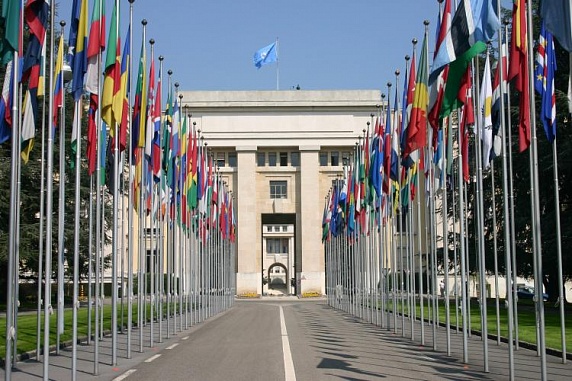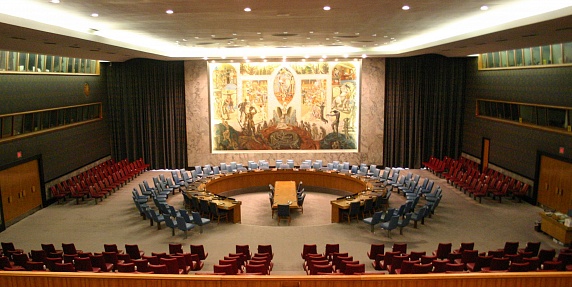 ONU
ONU
Foreign Ministry Spokeswoman Maria Zakharova’s answer to a media question on the occasion of the United Nations anniversary
Question: This year marks the 80th anniversary of the United Nations, whose Charter came into force on October 29, 1945, following the Soviet Union’s submission of its instrument of ratification to the US government. How would you evaluate the role of the UN in safeguarding Russia’s security interests in the post-war era?
Maria Zakharova: The establishment of the United Nations was a result of the great Victory in World War II, won through the unparalleled heroism of Soviet soldiers and the sacrifice of millions of lives from the USSR, as well as from other nations of the anti-Hitler coalition.
The Soviet Union, whose legal successor is Russia, was among the founding members of the United Nations. It was in Moscow, in the autumn of 1943, that the World War II allies – representatives of the USSR, the United Kingdom, and the United States – reached a consensus on the need to create an international organisation aimed at shielding future generations from another global conflict. Later, under the Soviet Union’s leading influence, this concept was further developed and ultimately realised at the San Francisco Conference in 1945.
The United Nations became the cornerstone of the new Yalta-Potsdam system of international relations. The Organisation’s Charter enshrined the fundamental norms of international law that established the code of conduct for states on the global stage. Chief among these are the principles of sovereign equality of states, the right of peoples to self-determination, and non-interference in internal affairs. It is also essential to highlight the principle of territorial integrity, though with a significant qualification: as stipulated in the unanimously adopted 1970 Declaration on Principles of International Law, this principle applies only to states whose governments represent the entirety of their population without discrimination of any kind.
The United Nations provided the international community with a uniquely legitimate and representative platform for negotiations. It established a robust institutional framework for fostering equitable multilateral cooperation aimed at addressing a broad spectrum of global challenges, from maintaining peace and security to advancing sustainable socio-economic development and promoting human rights.
Throughout its history, the United Nations has weathered numerous challenging periods. The most severe test of its resilience came during the Cold War, which repeatedly pushed humanity to the brink of a nuclear catastrophe and hindered collective efforts to address global threats. The brief “unipolar moment” in international relations also undermined the UN’s standing, as the United States and its satellites, perceiving themselves as victors in the Cold War, engaged in a series of unilateral and often unlawful actions, at times disregarding the Organisation and its Charter.
Currently, the UN-centred system has once again entered a period of crisis. The Organisation is frequently criticised for excessive bureaucracy, inefficiency, overlapping mandates, and the suboptimal use of resources. However, the erosion of its authority and effectiveness should not be attributed primarily to any supposed inherent flaws, but rather to the destabilising policies of the collective West, which has systematically worked to undermine the Organisation from within.
In this context, it is clear that the United Nations’ authority and standing can be fully restored only if Western countries abandon unfounded notions of exceptionalism and demonstrate a genuine commitment to equitable international cooperation grounded in a balance of interests. Progress toward the noble goals enshrined in the UN Charter and toward effective solutions to today’s global challenges is achievable only through the coordinated efforts of all member states.
Today, the United Nations remains without alternative. In line with its Foreign Policy Concept, Russia places a high priority on engagement with the UN, including on matters related to national security. This engagement involves promoting balanced approaches to resolving armed conflicts and safeguarding the core interests of our country and those of like-minded nations representing the Global Majority.









